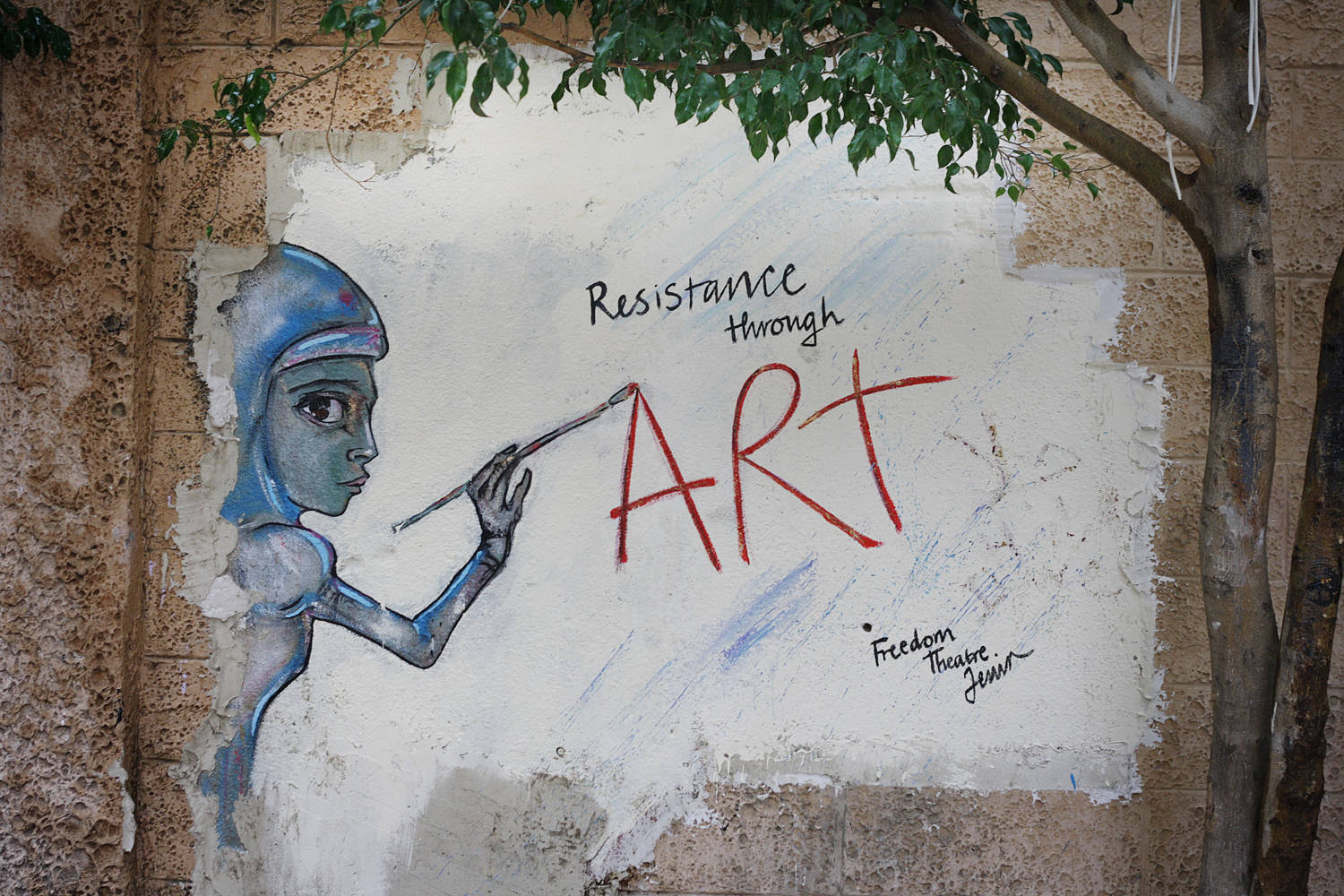
How does occupation affect art and individual artists? Is it possible to look at art from occupied areas without considering the restrictions on freedom and other rights? Is free art possible in occupied territories?
In this seminar, Ahmed Tobasi, the Director of The Freedom Theatre in Jenin, Palestine and Sara Christophersen will sit down to share their experiences and discuss the role of art as activism, cultural resistance, assertions of identity, and ongoing shifts in Palestinian narratives.
The conversation is hosted by PRIO's Middle East Centre and PRIO's Centre on Culture and Violent Conflict.
The director of PRIO's Middle East Centre, Kristian Berg Harpviken, will moderate the discussion and offer opening remarks.
A light meal will be provided.
Speakers
Ahmed Tobasi, Artistic Director of The Freedom Theatre in Palestine
Ahmed is an accomplished actor, director, and educator with experience working in theatres throughout Palestine and internationally. Born in Jenin refugee camp in Palestine, Tobasi joined the armed resistance during the Israeli invasion of the camp in 2002 and was in prison before his 18th birthday. Upon his release three years later, Tobasi embraced the idea of using culture as a form of resistance. Tobasi acts and works in international productions sharing the Palestinian experiences and narrative with new audiences.
Sara Christophersen, Researcher and Coordinator of PRIO's Centre on Culture and Violent Conflict
For the past 15 years, Sara has worked as an independent dancer and choreographer, taking part in and leading several collaborative projects in Palestine, Lebanon, Jordan, and Ethiopia. Sara is currently working as a researcher and coordinator at the Peace Research Institute Oslo (PRIO). Her academic and artistic interests intersect with a particular interest in feminist methodologies, notions of solidarity and care, and collaborative processes of knowledge creation. Artistically she is interested in interdisciplinary methods, and her work is often done in negotiation with the context in which it is produced. In 2015 she was awarded together with her colleague Helle Siljeholm the Hans Christian Ostrø Memorial Award for their distinctive work in Palestine and the Middle East.





